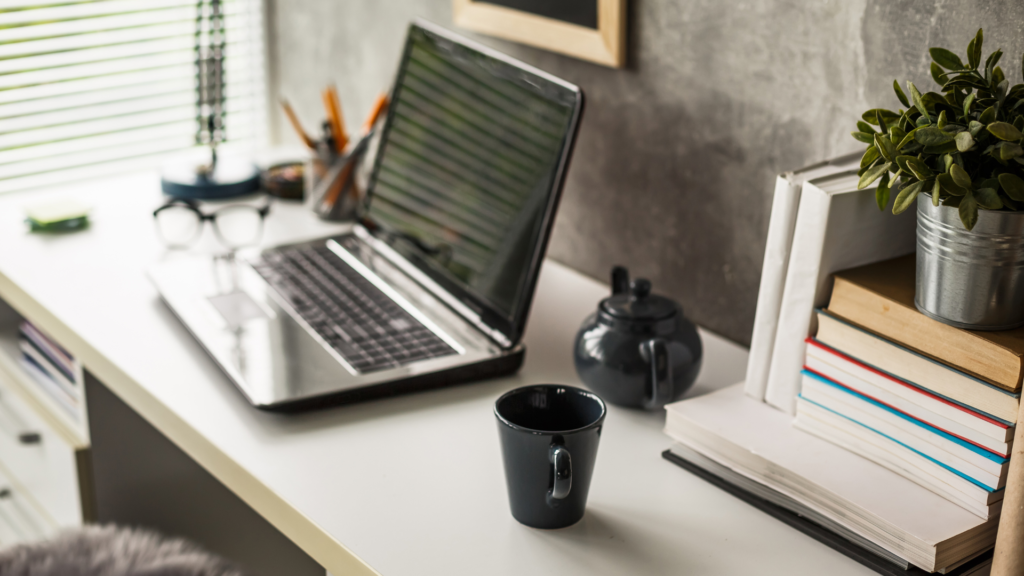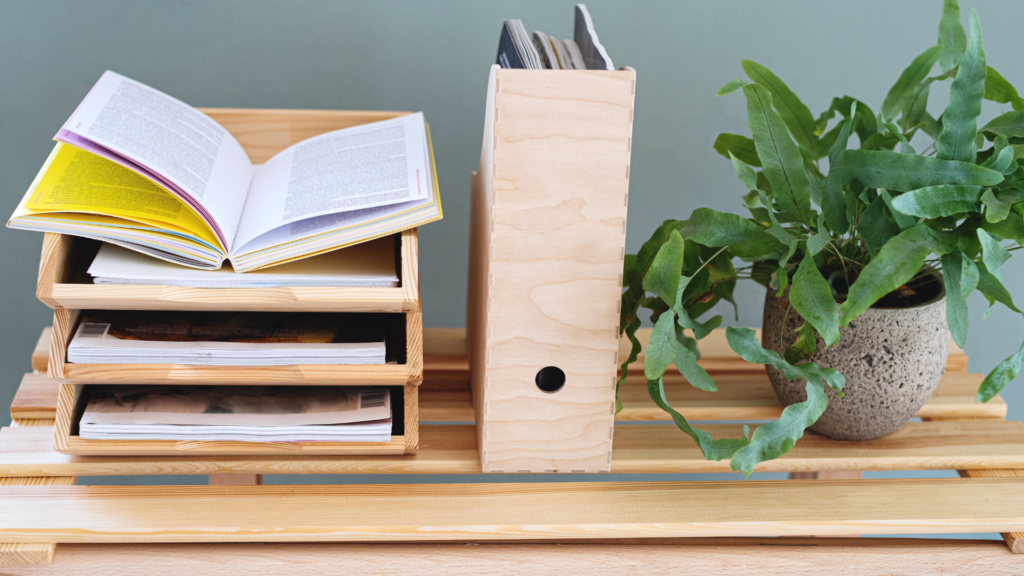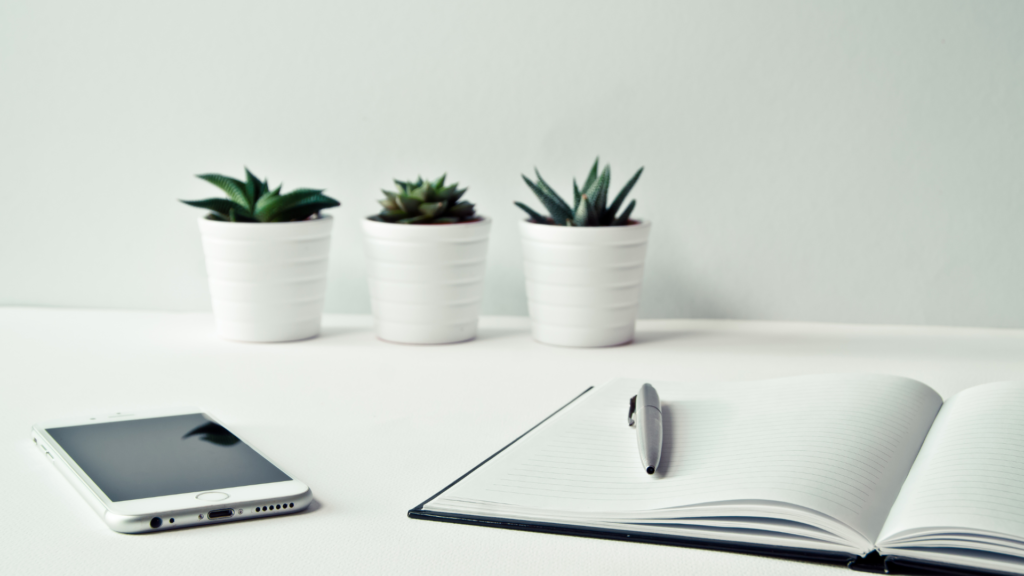Organizers for Study Room: keep it Tidy and Clutter Free

We all know the feeling: you sit down at your desk, ready to tackle your study session, and immediately feel overwhelmed by the chaos around you. Papers are scattered everywhere and finding that one important document feels like searching for a needle in a haystack. The solution? Organizers.
A well-organized study space isn’t just about aesthetics, it’s about creating an environment where you can focus, think clearly, and be productive. In this guide, we’ll explore the best organizers for your study room, helping you turn that cluttered desk into a haven of order and efficiency.
Why Organization Matters
Before diving into the types of organizers, it’s important to understand why organization in a study room matters so much.
Boosts Productivity
A clutter-free space allows your mind to focus on the task at hand rather than the mess surrounding you. When everything has its place, you spend less time searching for things and more time being productive.
Reduces Stress
A chaotic environment can lead to feelings of anxiety and stress. On the other hand, an organized space can create a sense of calm, making it easier to concentrate on your studies.

Saves Time
An organized study space helps you find what you need quickly. Instead of hunting for that missing textbook or your favorite pen, you can spend that time more effectively.
Enhances Creativity
An orderly environment can spark creativity. When your desk is neat and tidy, you’re more likely to have the mental clarity needed to generate new ideas and solve problems.
Now that we know why it’s important to keep your study room organized, let’s dive into the best tools and strategies to achieve that.
Organizers for Desk

The desk is the heart of any study room, so keeping it organized is crucial. Here are some desk organizers that can make a big difference:
Desk Trays and Document Holders
Papers can quickly pile up, making your desk look like a mini Mount Everest. Desk trays and document holders are lifesavers for keeping your paperwork in check. Opt for stackable trays that allow you to categorize papers; one for assignments, one for notes, and another for reference materials. Document holders can prop up important papers or books, so they’re always within reach and easy to view.
Drawer Organizers
Drawers can either be a blessing or a curse, depending on how you use them. Instead of throwing everything into a drawer and forgetting about it, use drawer organizers to keep things neat. Small compartments for pens, paperclips, and other office supplies can prevent your drawers from becoming a jumbled mess.

Pen Holders and Caddies
Pens, pencils, highlighters, they all have a way of disappearing when you need them most. Pen holders and desk caddies can keep your writing instruments organized and accessible. Choose a caddy with multiple compartments to store not only pens but also scissors, rulers, and sticky notes.
Cable Management Solutions
In today’s digital age, cables are everywhere. From chargers to headphones, cables can quickly clutter your desk. Invest in cable management solutions like clips, sleeves, or even a cable box to keep your wires under control. Not only will it tidy up your desk, but it’ll also prevent the frustration of tangled cords.

Organizers for Wall
Books, binders, and other materials can take up a lot of space. To keep them organized without overwhelming your desk, consider the following storage solutions:
Bookshelves
A sturdy bookshelf is a must for any study room. It keeps your books organized and within easy reaches. Arrange your books by subject, size, or even color for a visually pleasing and practical setup. If you’re short on space, a vertical bookshelf can maximize storage without taking up too much room.
Floating Shelves
Floating shelves are a stylish and space-saving solution for additional storage. They’re perfect for displaying books, plants, or decorative items that add personality to your study room. Plus, they keep your desk clear, leaving more room for studying.
Wall Organizers
Wall organizers, like corkboards or pegboards, are fantastic for keeping important notes, reminders, and schedules in plain sight. Use them to pin up to-do lists, inspirational quotes, or even a calendar to keep track of your deadlines.

Organizers for Small Items
Sometimes, it’s the small things that create the most clutter. Here’s how to keep those tiny but essential items in order:
Storage Bins and Baskets
Storage bins and baskets are versatile tools that can be used to store anything from notebooks to tech gadgets. Place them on shelves, under your desk, or in a closet to keep things organized and out of sight. Label them for even easier access.
Labeling Systems
Labels might seem like overkill, but they can be a game-changer for organization. Whether you’re labeling storage bins, drawers, or files, a clear labeling system will save you time and frustration. You’ll never have to wonder where something is again.
Magazine Holders
Magazine holders aren’t just for magazines. They’re great for organizing notebooks, folders, and even tablets. Place them on your desk or shelves to keep these items upright and easy to grab.
Personalizing Your Space
While functionality is key, don’t forget to add a personal touch to your study room. A space that reflects your personality will make you feel more comfortable and motivated. Here are some ideas:
Decorative Items
Adding a few decorative items like plants, art prints, or a cozy rug can make your study room feel inviting. Just be careful not to overdo it—too many decorations can create clutter rather than calm.

Lighting
Good lighting is essential for any study room. Natural light is best, but if that’s not an option, invest in a quality desk lamp. Choose one with adjustable brightness to reduce eye strain. A well-lit space can improve your focus and keep you alert during long study sessions.
Comfortable Seating
Your chair is where you’ll be spending a lot of time, so make sure it’s comfortable. Look for an ergonomic chair that supports good posture. Add a cushion or a blanket for extra comfort and a touch of coziness.
Conclusion: Start Small, Stay Consistent
Organizing your study room doesn’t have to be an overwhelming task. Start with one area, maybe your desk or bookshelf and gradually work your way through the space. The key is to stay consistent with your organization habits. Spend a few minutes each day tidying up, and your study room will remain a productive and stress-free environment.
You can also check youtube videos for more ideas. I found this video very useful and relaxing to follow. If you’re looking to declutter your bathroom as well, be sure to take a look at my post on bathroom organizers for some great tips!
Remember, the goal is to create a space that works for you. Everyone’s organization styles are different, so find what makes you feel most comfortable and focused. With the right organizers and a little effort, you can transform your study room into the ultimate space for success. Happy studying!